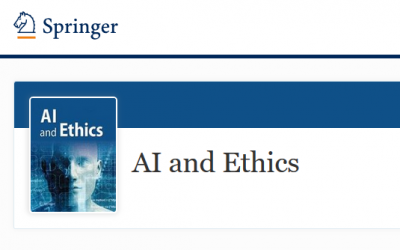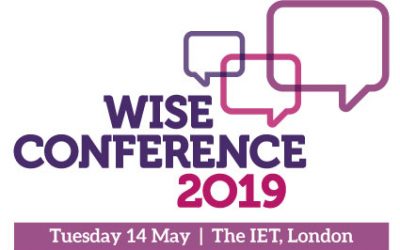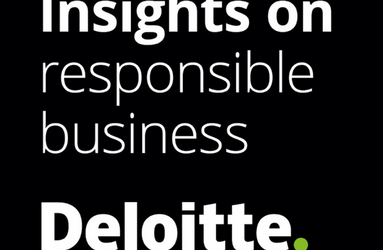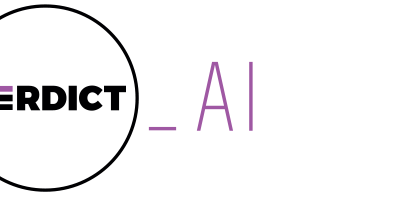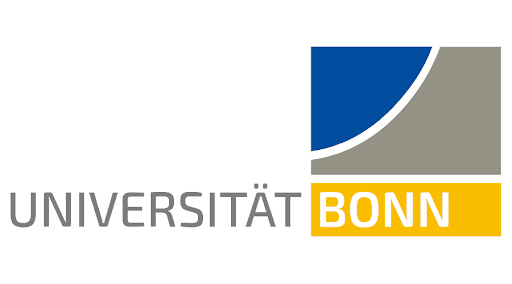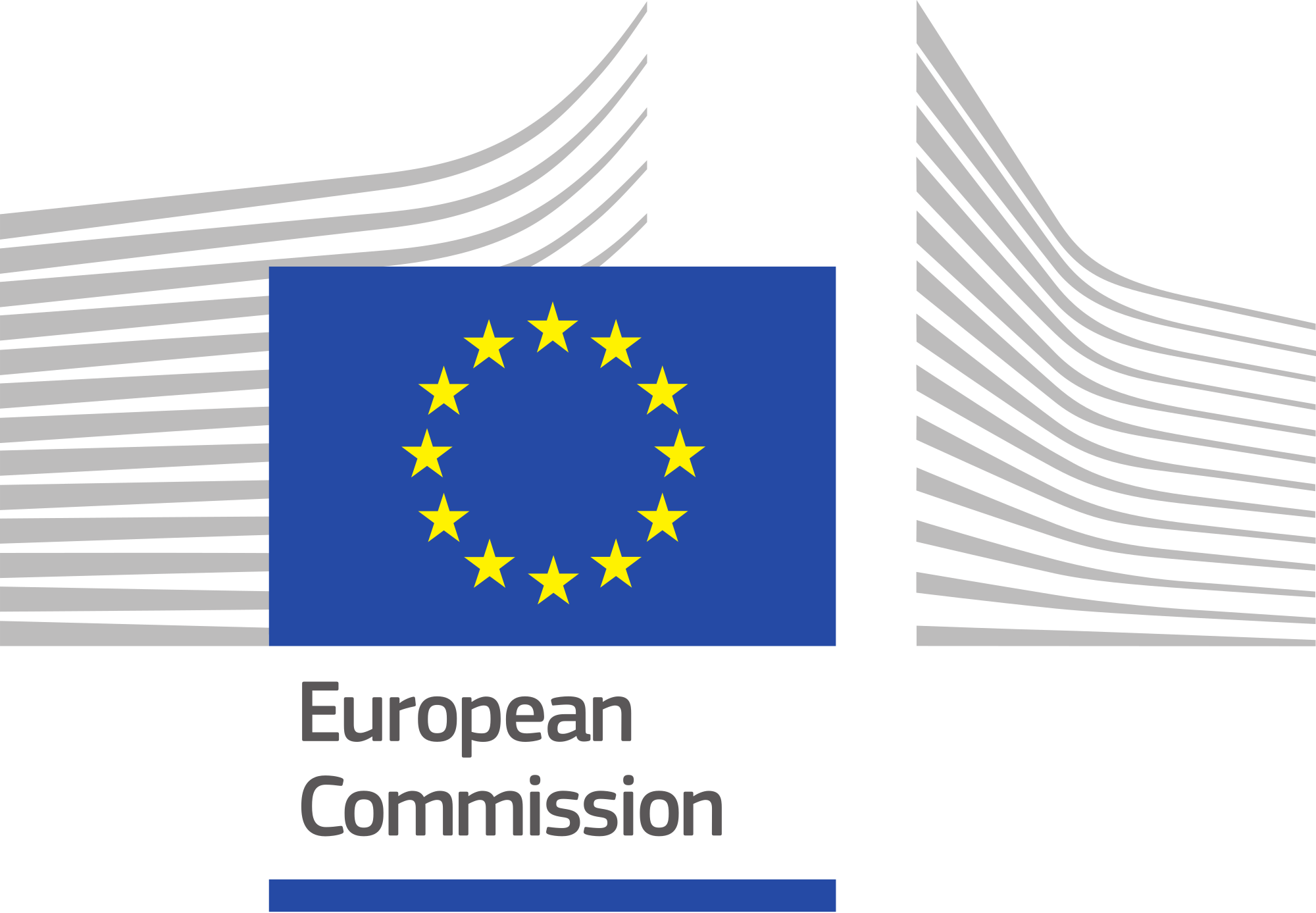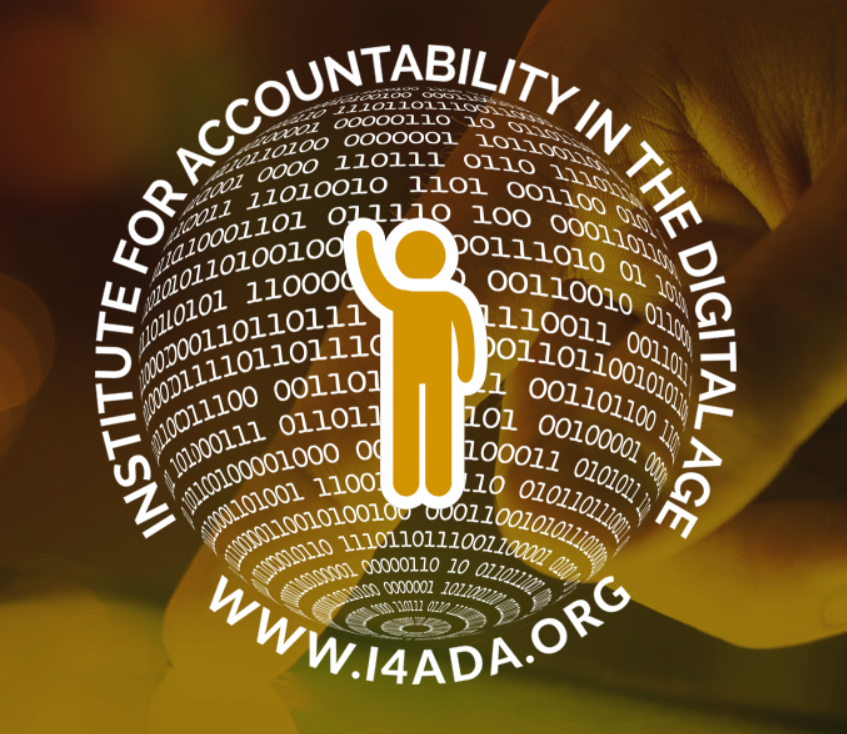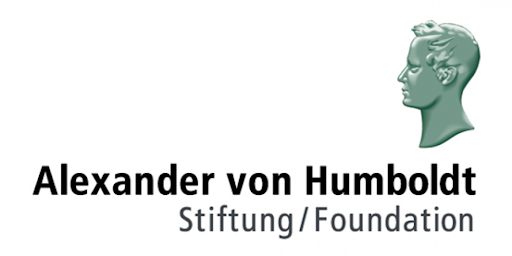Photo and Bio
Short Bio
Aimee van Wynsberghe has been working in ICT and robotics since 2004. She began her career as part of a research team working with surgical robots in Canada at CSTAR (Canadian Surgical Technologies and Advance Robotics). She is the Alexander von Humboldt Professor for Applied Ethics of Artificial Intelligence at the University of Bonn in Germany. Aimee is co-founder and co-director of the Foundation for Responsible Robotics and on the board of the Institute for Accountability in a Digital Age. She is a 2018 L'Oreal Unesco 'For Women in Science' laureate. Aimee also serves as a member of the European Commission's High-Level Expert Group on AI and is a founding board member of the Netherlands AI Alliance. She is a founding editor for the international peer-reviewed journal AI & Ethics (Springer Nature) and a member of the World Economic Forum's Global Futures Council on Artificial Intelligence and Humanity. Aimee has been named one of the Netherlands top 400 influential women under 38 by VIVA and was named one of the 25 ‘women in robotics you need to know about’. She is author of the book Healthcare Robots: Ethics, Design, and Implementation and has been awarded an NWO personal research grant to study how we can responsibly design service robots. She has been interviewed by BBC, Quartz, Financial Times, and other International news media on the topic of ethics and robots, and is often invited to speak at International conferences and summits.
Aimee van Wynsberghe: Pioneering Ethical Robotics and Shaping the Future
In the fast-evolving landscape of the robot world and Artificial Intelligence in particular, some people tend to stand out as a source of innovation and inspiration. When it comes to Aimee van Wynsberghe, with her deep knowledge in the field of robotics and ethics, has turned into one such individual. Her study and research influence the development of advanced techs as well as raise crucial questions about the moral implications of techs. As a result, the whole global society is challenged to consider the ethical dimensions of today’s technological creations. Below, we’ll try to find out more about one of the members of the European Commission's High-Level Expert Group on AI, her lifelines, accomplishments, as well as contributions to shaping the ethical foundation for the world of robotics.
Aimee van Wynsberghe: A Journey of Passion and Expertise
Aimee van Wynsberghe’s journey into the universe of robotics started early in her life when she was truly fascinated with the tech's intersection and human values. Even the academic path of the woman is the reflection of the unique mix of interests and passions that she has. Aimee van Wynsberghe completed her studies in the field of media and philosophy and decided to pursue an MA degree in computer-mediated communication straight away. This became a solid basis for Aimee’s eventual specialization in the area of robotics ethics.
With an academic background that linked the gap between techs, communication, and philosophy, the woman embarked on an exciting Ph.D. journey at the European University of Twente (Netherlands). Her doctoral robotics research was focused on the ethical implications of healthcare robotics. In her project, Aimee van Wynsberghe discussed the complexities that pop up when the computer is entrusted with a caregiving role. Her work showed how proficient she was in tech concepts and how dedicated she was to raising awareness of the range of ethical challenges posed by robotics techs.
Aimee van Wynsberghe Sets the Foundation for Responsible Robotics
One of the key contributions of Aimee van Wynsberghe to the area of robotics ethics was the establishment of FRR (Foundation for Responsible Robotics). Founded in 2015, the foundation addressed the societal, ethical, and policy challenges somehow related to the fast advancement of Artificial Intelligence and robotics. The core mission of FRR reflected the growing concerns related to the potential consequences of unchecked development of the field of techs.
By means of her brainchild, Aimee van Wynsberghe and every other member of her team did their best to set guidelines and frameworks for the most responsive design, use, as well as deployment of robotics techs. In a professional team working, they paid attention to the field of academia and co-worked with industry stakeholders and policymakers together with the general public in order to come up with a better approach to robotics. Her leadership role in the foundation demonstrated that she was capable of linking the gap between practice and theory, as well as bridging all professionals from different areas to handle robotics’ intricacies together.
Shaping Global Policies: Aimee van Wynsberghe Inspired Discussions
The influence of Aimee van Wynsberghe went far beyond the field of the academic world. The woman has successfully turned into a loud voice in global debates on robotics ethics and governance of Artificial Intelligence. Every other international conference, economist innovation summit, or forum was the place where she was sincerely invited. If you asked the reps of Forbes about Aimee van Wynsberghe, you would certainly hear the word combinations like “the future of technology.” By standing for accountability, transparency, and inclusivity in AI and robotics development, she contributed greatly to ethical standards’ establishment. The latter would stand behind the rapid growth of the industry.
The impact of Aimee was especially significant when she co-founded and became the president of the ICRAC (International Committee for Robot Arms Control). The core principles of the organizations were the responsible use of robotic weaponry and the prevention of the development of autonomous weapons systems that require zero human involvement.
Professor Aimee van Wynsberghe to Champion a Holistic Perspective
One of the core things that make Aimee stand against the background of the rest of the experts in the field is her dedication to robotics ethics and approaching it from the so-called holistic perspective. In her advocacy, the woman goes beyond a narrow focus on the AI and robots’ dangers. Instead, professor van Wynsberghe emphasizes how important it is to consider the broader implications for the whole world, including cultural, economic, and political areas. Through her unique vision, she does her best to challenge people to consider the tech aspects and the ways in which all the advancements influence our shared human experience.
Her holistic approach can be easily traced in her public engagements, where the professor discusses the issues with the reps of diverse backgrounds, be it a scientist or a member of parliament. The way she communicates proves how dedicated she is to fostering a more informed public discourse about the role of techs in our lives.
The Humboldt Professorship: A Coveted Honor for Prof. Dr. Aimee van Wynsberghe
The Humboldt Professorship, also known as the Alexander von Humboldt Professorship, is a highly esteemed academic accolade that only the most profound and talented scholars and researchers can get. The award received its name after a famous Prussian naturalist, Alexander von Humboldt. Today, it is presented by the Alexander von Humboldt Foundation and supported by the German Federal Ministry of Education and Research.
Aimee van Wynsberghe Elevation of Robotics Ethics through the Humboldt Professorship
Aimee van Wynsberghe’s appointment to the Humboldt Professorship was solid proof of her significant contributions to the area. Not only did it recognize her proficiency in the field of robotic ethics, but it also underscored the importance of ethics in guiding the development and deployment of advanced techs.
By means of Humboldt Professorship, the expert was provided with a reliable platform to perform her research and co-work with colleagues in the same field. This appointment further proved her role as a thought leader. This, in turn, provided her with more influence needed to inspire the next generation of technologists, researchers, scholars, etc.
Printed Works: Shaping Ethics in the Age of Robotics
Robotics ethicist’s extensive body of work in the chosen area has made a huge impact on shaping the responsible development and deployment of the techs in the field of robotics. By means of her publications and research as a board member in Bonn or any other educational establishment, Aimee became the so-called driving force in taking ethical considerations to the forefront of techn development and innovation. Below, we offer a list of some of her most prominent works.
Professor Aimee van Wynsberghe, "Healthcare Robots: Ethics, Design, and Implementation" (2015)
In this book, the author discusses the intricate ethical challenges that pop up when robots are integrated into the field of healthcare. She focuses on caregiving roles and delves into the implications of machines helping and interacting with the most vulnerable individuals.
Journal Article - "Designing Robots for Care: Care Centered Value-Sensitive Design" by Aimee van Wynsberghe (2013)
In this journal article, Aimee van Wynsberghe focuses on the VSD concept (Value-Sensitive Design) together with its application to designing robots for care. The readers meet the Care-Centered Value-Sensitive Design framework that aims to ensure that robots meet all the values that are crucial in the area of caregiving.
Book Chapter - "The Problem of Responsibility in Robotics" by Aimee van Wynsberghe (2017)
The robotics ethicist was asked to contribute to "The Ethics of Technological Risk,” where she explored the intricate issue of responsibility when it comes to robotics. The author asks questions of who should take responsibility for the decisions or failures made by robotics, as well as tries to figure out the responsibility that should be considered in the reality where people collaborate with robots.
How About the Advice for the Next Generation?
Once, Professor Aimee van Wynsberghe was asked to give a piece of advice for the next generation. First and foremost, the woman recommended to always stand up and speak up for yourself and others when it’s important. One of the core recommendations was to never worry about the fact that your studies/job do not go as you planned or dreamed. Just keep that to yourself and take your skills to the next job or field of study. Finally, she advises you to question everything and never sacrifice your career for a happy family life and vice versa.
Continuing the Journey
Through her advocacy, research, and leadership, she paves the way for a future in which robots and AI systems coexist harmoniously with human values and aspirations.
At the moment, Aimee van Wynsberghe keeps on making great contributions to the area of robotics ethics. In every project that she’s engaged in, Aimee does her best to remind us that the tech progress we all witness must be accompanied by thoughtful reflection on the whole scope of ethical implications. In a world where innovations never stop, the professional stands as the so-called beacon of ethical guidance. Day by day, Aimee van Wynsberghe inspires people to shape tech so that it boosts our lives rather than diminishes it. With every grant she gets and every statement she makes for the Science and Technology Options Assessment (STOA) for the European Parliament or any other establishment, she reminds us that the tech revolution is not just a scientific endeavor but a moral responsibility. According to Professor van Wynsberghe, the latter requires compassion, wisdom, and foresight.
FAQs
- Why did Aimee pick the field of robotics ethics?
Aimee started her academic studies in Cell Biology at the University of Western Ontario, Canada, in 2002. That’s when she participated in the team project based on the surgical robots at Canadian Surgical Technologies and Advance Robotics. That’s when she began to ask questions that bothered her about the meaning of surgical robots and how they could change the process. With a very helpful boss, Dr. Schlachta, she began to study ethics to find answers to all of her questions.
- Why does Aimee van Wynsberghe like working in the field of STEM?
Aimee likes to be part of the process and the voice in the discussion of tech development. Getting other people to think about things they would never think otherwise is her favorite thing, just like meeting individuals who share the same vision in order to make things happen.
- Was Aimee on the VIVA 400 List?
Yes. VIVA 400 is a high-status annual recognition that celebrates the achievements of the 400 most influential and talented women in the Netherlands in a wide range of areas. Significant contributions of Aimee to the field of robotics ethics were the main reason for her presence on the VIVA 400 List.
Latest
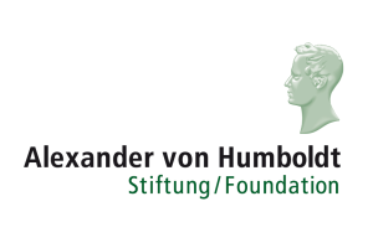
Humboldt Professorship
Aimee is thrilled to announce that she was chosen as a winner of the "Alexander von Humboldt" grant for AI research. She will be moving to Bonn, Germany to join an outstanding team of researchers and create her own lab focusing on "Sustainable AI". It is a great honor...

International Foundation of Robotics Research Colloquium
On Thursday Nov 5, Aimee is joining Rodney Brooks and Yoshihiko Nakamura for the International Foundation of Robotics Research colloquium on "Robots and Society". Tune in to hear the three of them discuss current issues in robotics, moderated by Raja Chatila.
Robophilosophy Keynote
Aimee had the pleasure of giving a plenary talk at the 2020 edition of RoboPhil. Her talk took a new approach to the idea of ‘designing robots for reciprocity’. She took a critical look at the initiative to design robots for reciprocation between robot and human and...
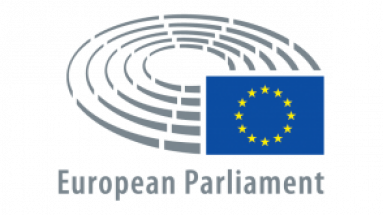
Artificial intelligence: From ethics to policy (EU Parliament Research Blog)
Mihalis Kritikos (Policy Analyst at the European Parliament) wrote a nice piece about Aimee's STOA study Artificial Intelligence: From Ethics to Policy (which she wrote at the request of the European Parliament's STOA panel). See his full piece here. The study then...

AI for Good Discussion: How to develop Accountable AI solutions?
Aimee and Jan Kleijssen (Council of Europe) were on the virtual AI for Good stage to discuss the concept of accountability for artificial intelligence.

Aimee’s STOA Report Released! Artificial intelligence: From ethics to policy
Aimee wrote a report for the European Parliament's Science and Technology Options Assessment (STOA) think tank entitled Artificial Intelligence: From Ethics to Policy. Abstract There is little doubt that artificial intelligence (AI) and machine learning (ML) will...
Media
Humboldt Professorship
Aimee is thrilled to announce that she was chosen as a winner of the "Alexander von Humboldt" grant for AI research. She will be moving to Bonn, Germany to join an outstanding team of researchers and create her own lab focusing on "Sustainable AI". It is a great honor...
Robophilosophy Keynote
Aimee had the pleasure of giving a plenary talk at the 2020 edition of RoboPhil. Her talk took a new approach to the idea of ‘designing robots for reciprocity’. She took a critical look at the initiative to design robots for reciprocation between robot and human and...
Artificial intelligence: From ethics to policy (EU Parliament Research Blog)
Mihalis Kritikos (Policy Analyst at the European Parliament) wrote a nice piece about Aimee's STOA study Artificial Intelligence: From Ethics to Policy (which she wrote at the request of the European Parliament's STOA panel). See his full piece here. The study then...
Aimee’s STOA Report Released! Artificial intelligence: From ethics to policy
Aimee wrote a report for the European Parliament's Science and Technology Options Assessment (STOA) think tank entitled Artificial Intelligence: From Ethics to Policy. Abstract There is little doubt that artificial intelligence (AI) and machine learning (ML) will...
Editorial Board of new Springer Nature Journal “AI and Ethics”
Aimee has accepted an invitation to be on the editorial board of the Springer Nature journal AI and Ethics. This new journal aims to: promote informed debate and discussion of the ethical, regulatory, and policy implications that arise from the development of AI. It...
WISE Blog: The cycle of women in robotics: from vicious to virtuous
Aimee wrote a blog post as part of a series on women in STEM. The series was made up of contributors from the Women in Science and Engineering Conference 2019. Check out the post here.
Aimee featured on the Insights on Responsible Business Podcast
She is interviewed by Sir Rob Wainwright about "Why ethics matter for responsible business". Check it out here.
VIVA 400 List
Aimee has once again been named as one of the 400 women in the Netherlands who are "successful, matter, and make a difference". You can vote for her in the category of 'Tech Talent' here: https://www.viva.nl/viva400/techtalenten/.
Interview in Verdict AI Magazine
Aimee was interviewed by Rob Scammell for and featured extensively in an article for Verdict AI Magazine (Winter 2019 Edition). You can find the article here.
Critiquing the Reasons for Making Artificial Moral Agents (2018)
The Dawning of the Ethics of Environmental Robots (2017)
Service Robots, Ethics, and Design (2016)
Designing robots for care: Care centered value-sensitive design (2013)
Ethicist as Designer: a pragmatic approach to ethics in the lab (2014)
Book: Healthcare Robots (Ashgate, 2015)
 Link: https://www.routledge.com/products/isbn/9781472444332 Citation: van Wynsberghe, A. (2015). Healthcare robots: ethics, design and implementation. Ashgate Publishing, Ltd. ’This is a tour de force from one of a new breed of researchers concerned with the societal and ethical issues created by new technologies. Wynsberghe highlights many of the problems with the accelerating use of robotics for elder care and brilliantly points the way forward through value sensitive design. This is a must read, not only for those working in robotics but also for those interested in the future and practice of care.’ Noel Sharkey, University of Sheffield, UK
Link: https://www.routledge.com/products/isbn/9781472444332 Citation: van Wynsberghe, A. (2015). Healthcare robots: ethics, design and implementation. Ashgate Publishing, Ltd. ’This is a tour de force from one of a new breed of researchers concerned with the societal and ethical issues created by new technologies. Wynsberghe highlights many of the problems with the accelerating use of robotics for elder care and brilliantly points the way forward through value sensitive design. This is a must read, not only for those working in robotics but also for those interested in the future and practice of care.’ Noel Sharkey, University of Sheffield, UK Telesurgery: An Ethical Appraisal (2008)
Affiliations
Bonn University
Role: Humboldt Full Professor (Chair of Applied Ethics of Artificial Intelligence)
Paid: Yes
NDA: No
Foundation for Responsible Robotics
Role: Co-Founder & President
Paid: No
NDA: No
European Commission
Role: Member of High-Level Expert Group on AI
Paid: No
NDA: No
ALLAI (Alliance for AI in the Netherlands)
Role: Board Member
Paid: No
NDA: No
Institute for Accountability in a Digital Age
Role: Board Member
Paid: No
NDA: No
Current Funding
Humboldt Foundation
Grant Name: Humboldt Professorship
Type: Personal Research Grant
Amount: 3.5 Million Euros
Paid To:Bonn University


